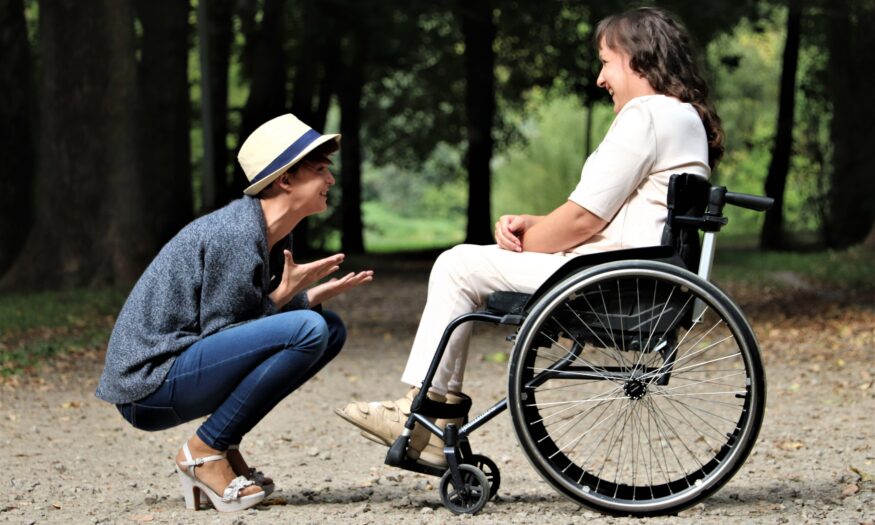Safer Sex Between People with Pussies*
 Illustration by Laura Arredondo
Illustration by Laura Arredondo
The following text uses the word “pussy*” as defined by Pussypedia.
by Sheena Kuhn
Despite the popular myth that people with pussies* who have sex with each other are at less of a risk, sex between people with pussies* indeed poses a similar risk as sex between people with other genitals (besides the 0% risk of pregnancy.) But chlamydia, gonorrhoea, syphilis, bacterial vaginosis, herpes, HIV, and all other STI’s are still real risks. So, people with pussies* should practice safer sex even with each other.
Protection Before Sex
Vaccinations (help not harm): It is important to receive Hepatitis A & B and HPV vaccinations if you did not receive them as a child or young adult. Hepatitis A is treatable, but it can turn deadly without appropriate medical attention; Hepatitis B is also treatable, but it can result in deadly liver cancer.1 HPV can lead to cancer (70% of cervical cancers are the result of HPV diseases).2 Therefore, it is best to prevent all three diseases and give yourself peace of mind by getting vaccinated. Vaccines help NOT harm!
PReP: If you are having sex with HIV-positive person(s) or potentially HIV-positive person(s), PReP (pre-exposure prophylaxis) is crucial because it is a safe oral medication that decreases your risk of HIV by 90%.3 Contrary to popular belief, HIV is not a disease that only affects cisgender gay men. People with pussies* are also at risk, particularly if they are people of color or if they suffer from poverty. So, make sure you protect your health and start PReP if you are at all vulnerable to HIV.
Protection During Sex
Dental dams: This form of protection allows for safer oral sex. Essentially, dental dams are thin sheets of latex that are placed over the pussy* or anus during sex. They act as a barrier to decrease transmitting infections.4 Dental dams are rarely used in practice which is a little silly because they really would decrease people’s chances of contracting STIs. See the video in the resources to learn how to make one out of a condom.
Gloves: This form of protection is typically made of latex and used with water-based lube for safer fingering.4 While unsafe fingering may sound absurd, pussies* (and buttocks) can transfer infections to hands with open wounds (i.e. paper cuts, hangnails, etc.).
Finger cots: Finger cots are a variation of gloves. They are also made of latex and allow for safer fingering; in fact, the only difference is that finger cots are rolled on to individual fingers rather than entire hands (think of them as miniature finger condoms).5
Sex toys: If you and a partner(s) use sex toys, hygiene is paramount. Dirty sex toys are breeding grounds for infection, so they should be cleaned with soap and water and fitted with a fresh condom after each use–particularly if shared between multiple partners.4
Grooming:
- Cleanliness: If you are using external body parts (i.e. hands, feet, vulva, etc.) to have sex, make sure you are washing those body parts. The surface of your body is home to thousands of bacteria, and these can transfer/cause harm to other bodies during sex.4 So, make sure you and a partner(s) maintain proper hygiene and reduce sexual risk by washing thoroughly and regularly.
- Nail maintenance: Whenever having sex with people with pussies*, it is important to take precautions against accidental injuries. Because pussies* are especially sensitive to sharp/rough objects, ensure all partners prevent accidents by keeping their nails short and blunt.6
Protection After Sex
STI screening: Protection is a key aspect of safer sex between people with pussies*, but it doesn’t always work. That’s why you should get tested regularly if sexually active– even if you’ve been a safer sex champion. Local doctor’s office and health centers offer STI screening, and procedures may include urine tests, cheek swabs, blood tests, physical exams and genital swab. All of these are generally quick and painless, but their benefits are huge! They tell you about your sexual health. So, be sure to schedule appointments regularly, even if you are monogamous.
Additional Advice
Period Sex: If you or a partner(s) have periods, beware that the presence of blood during sexual intercourse increases the risk of STI’s. This is because the blood can carry pathogens.6 Therefore, taking extra precautions during that time of the month is a smart decision.
Sexual history: If you and a partner(s) are not monogamous, the risk of contracting infections is increased because the sexual health of outside partners must be considered. Additionally, sex between people with pussies* is not always exempt from the infection transmission risks that pertain to people with penises. After all, partners may have a history with people with penises, and any infections contracted then are infections that may be transferred now.6
Author’s Dedication: To Thomas March
Sources
- “What is hepatitis?” World Health Organization. (2016): <http://www.who.int/features/qa/76/en/>.
- “Human papillomavirus and cervical cancer.” World Health Organization. (2018): <http://www.who.int/news-room/fact-sheets/detail/human-papillomavirus-(hpv)-and-cervical-cancer>.
- “PReP.” Centers for Disease Control & Prevention. (2018): <https://www.cdc.gov/hiv/basics/prep.html>.
- “Sexual health for lesbian and bisexual women.” National Health Service. (2016): <https://www.nhs.uk/live-well/sexual-health/sexual-health-for-lesbian-and-bisexual-women/>.
- Fenway Health Safer Sex for Bisexuals and Their Partners. (2008): <http://fchc.convio.net/site/DocServer/safersexbi.pdf?docID=322>.
- Corinna, Heather. “All the barriers! All the time!” Scarleteen. (2018): <http://www.scarleteen.com/article/bodies/all_the_barriers_all_the_time>.
This article was previously published in Pussypedia and is reposted with permission.






